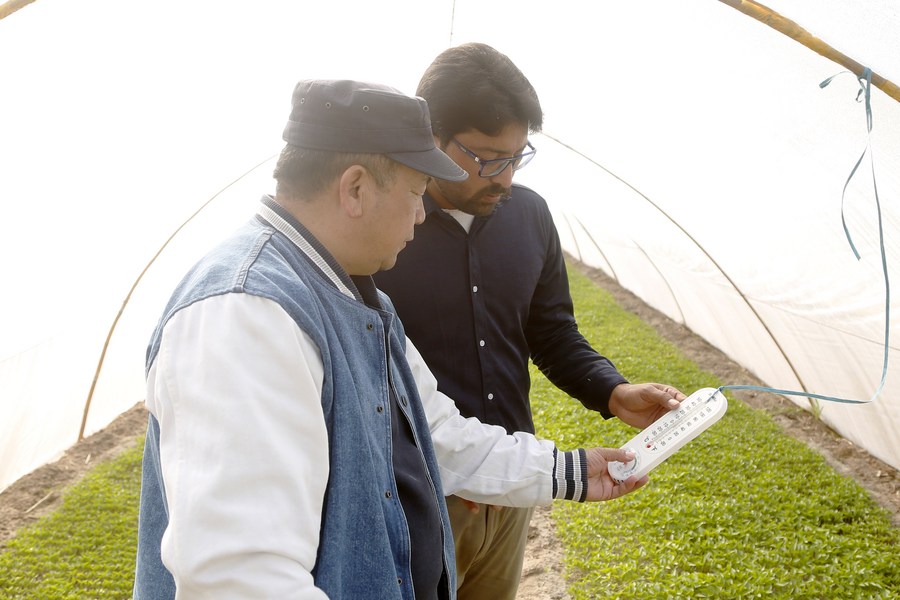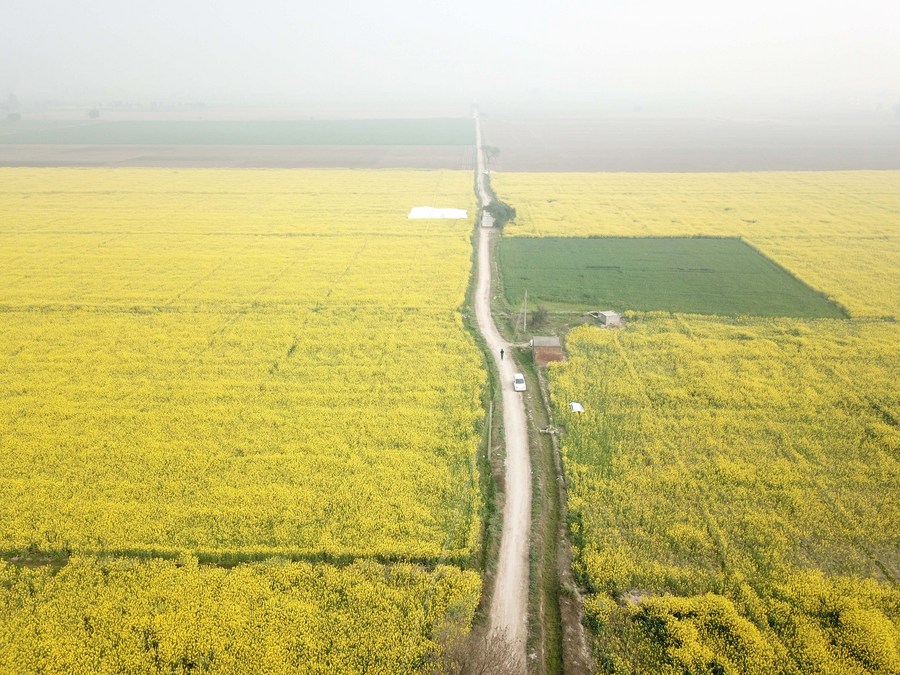
Zhao Jianhua (L), a Chinese agronomist, guides Pakistani technician Muhammad Sajjad in a greenhouse of the Pakistan-China red chili project in Multan, Pakistan, Jan. 16, 2023. (Xinhua/Ahmad Kamal)
Pakistani farmers welcome the adoption of China's scientific and technological innovations to help them improve crop yield and reduce the burden on soil and ecology due to environmentally harmful practices.
ISLAMABAD, May 11 (Xinhua) -- Pakistani experts said on Thursday that the use of China's scientific and technological advancements and innovations would play a key role in revolutionizing Pakistan's agricultural sector, enhancing productivity and food security.
China has not only modernized its agricultural sector, but also helped other countries including Pakistan by sharing advanced farming technologies, promoting agricultural research as well as facilitating knowledge exchange, said the experts during a seminar on sustainable agriculture organized by the Sustainable Development Policy Institute (SDPI), an Islamabad-based think tank.
Speaking on the occasion, Hassan Daud Butt, senior advisor at the China Study Center of the Sustainable Development Policy Institute, said that China has made massive progress in the field of agriculture through consistent policies, leadership and technology-driven interventions.
The Chinese advancement in the agriculture sector was unique in its fashion as less public capital and more private sector investment was utilized in developing the agriculture sector, he said, adding that Pakistan has a lot to learn from China to modernize its agriculture sector under the framework of the China-Pakistan Economic Corridor (CPEC).

This aerial photo taken on Feb. 20, 2023 shows blooming canola field on the outskirts of Gujranwala district in Pakistan's Punjab province. (Xinhua/Ahmad Kamal)
Launched in 2013, the CPEC, a flagship project of the China-proposed Belt and Road Initiative, is a corridor linking the Gwadar Port in southwest Pakistan's Balochistan province with Kashgar in northwest China's Xinjiang Uygur Autonomous Region, which highlights energy, transport, and industrial cooperation in the first phase, while in the new phase expands to fields of agriculture and livelihood, among others.
"Pakistan needs to learn from China about planning on short, mid and long-term goals with a top to bottom approach with policy consistency ... Moreover, the leadership in the public and private sector needs to be strengthened through mutual collaborations," Butt said.
Gulshan Irshad, an associate professor at the Pir Mehr Ali Shah Arid Agriculture University, Rawalpindi, stressed to focus on transfer of technology, capacity building and knowledge sharing between Pakistan and China on all modern agricultural farming trends.
"Under the CPEC, Pakistan and China need to further collaborate on advanced line seed variety and cropping techniques like aquaponics, hydroponics and tunnel farming," she said.
She added that Pakistani farmers are welcoming to modern concepts of agriculture farming, helping them improve their crop yield and reduce the burden on soil and ecology due to environment damaging practices.
Highlighting that the CPEC has played a crucial role in the modernization of the country's agricultural sector over the past decade, Misbah Khan, a senior research associate at the SDPI, stressed the need to take the cooperation between the two countries to new heights.
"Pakistan can create its route towards resilience, productivity and environmental stewardship by developing synergy with China's technology advancement, policy support and investment opportunities," Khan said.




 A single purchase
A single purchase









